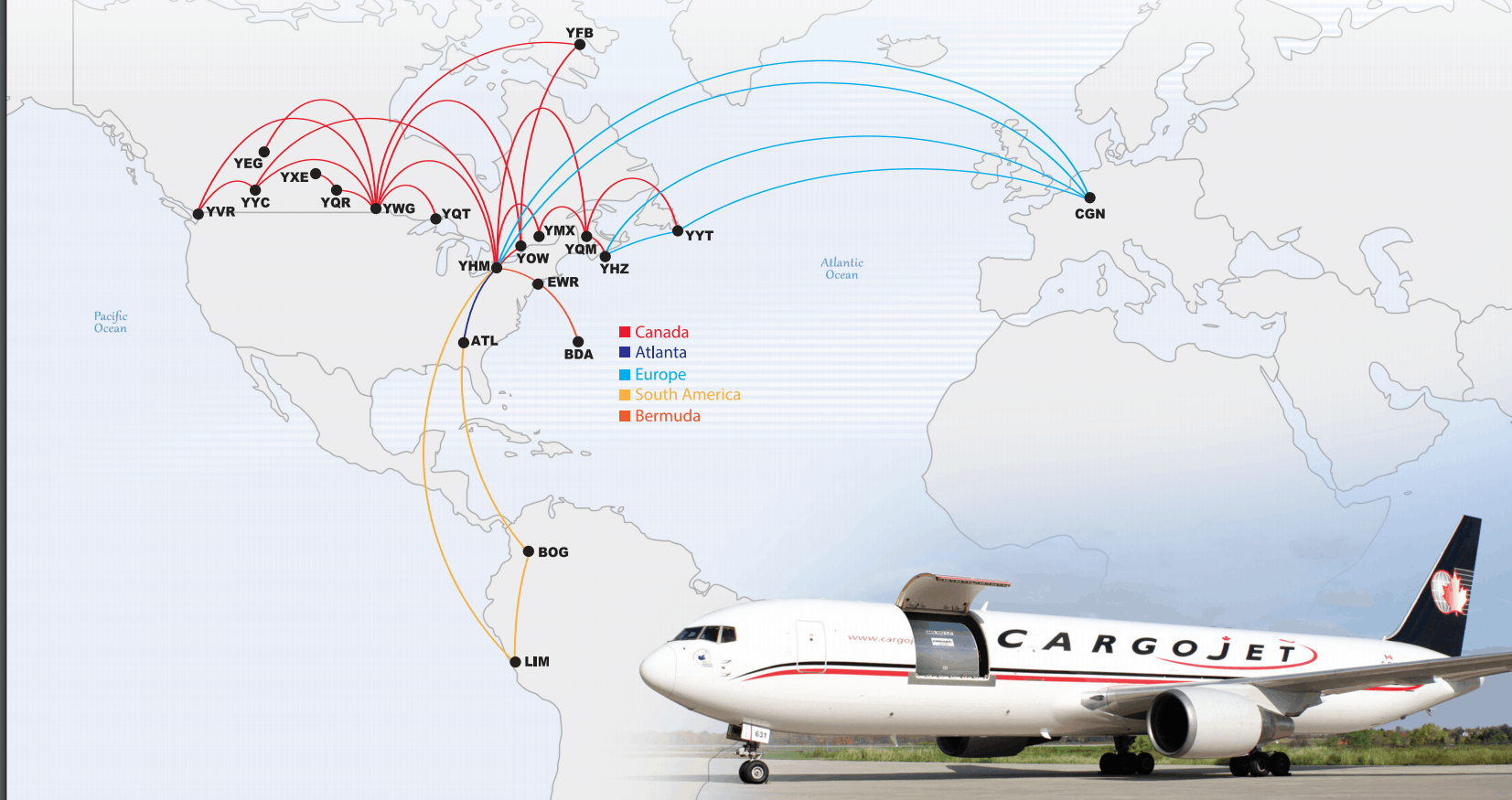
Air travel has yet to return to form but air cargo is booming, and that’s good news for Canadian overnight shipping company Cargojet (Cargojet Stock Quote, Charts, News, Analysts, Financials TSX:CJT). And with the stock currently in negative territory for the year, portfolio manager Bryden Teich thinks CJT looks good enough to be a top pick for the next 12 months.
Teich argues that Cargojet, which along with its domestic overnight cargo business has ACMI (aircraft, crew, maintenance and insurance) and charter plane businesses, will keep making hay on the accelerated shift to e-commerce.
“Obviously, Cargojet has benefited by the dramatic increase in online shopping and ordering,” said Teich, partner at Avenue Investment Management, speaking on BNN Bloomberg on Wednesday. “They had a great year last year but at the same time I think what also is really helping their business is, it’s not just a move to online delivery or online ordering and delivery, it’s the move towards next day delivery.”
“And so if you order packages in Canada, anywhere across the country, there’s a very high probability that at some point on the route to your house it was flown on the Cargojet plane,” he said.
Cargojet saw its revenue grow by 37 per cent in 2020, ending the year with a topline of $668.5 million and it earnings were even better, coming in with an adjusted EBITDA of $291.4 million compared to $156, representing an 87 per cent year-over-year increase.
“2020 reminded us of the old saying that adversity builds character,” said Dr. Ajay Virmani, President & CEO, in the company’s fourth quarter 2020 press release in March. “From the start of the pandemic, to our business being declared an essential service, to building unprecedented safety protocols to keep our employees safe while keeping the nation’s supply chains moving, Cargojet demonstrated unparalleled resilience.”
But with the return of bricks and mortar stores as economies reopen in the later stages of the pandemic, expectations have been somewhat lowered on growth prospects for e-commerce companies like Amazon and Shopify, where the highly accelerated growth seen last year is likely not to be repeated in 2021.
The same would seem to be the case with Cargojet, where the company’s second quarter 2021 results were delivered last month and featured revenue down 22 per cent to $172.1 million. But on closer inspection, that shortfall related to CJT’s Charter business, which had an outsized Q2 2020 due to government contracts for flying PPE from China to Canada in the middle of the pandemic. Otherwise, CJT said its revenue growth outside of Charter was 30 per cent.
Cargojet has recently made plain its intentions to stay in a growth frame of mind. Last month, it developed its international presence by acquiring a 25 per cent stake in 21Air, a North Carolina-based airline which has five 767 freighters along with charter, ACMI and CMI services. That’s after earlier this year announcing its plans for fleet and route expansion and raising a big $365 million in an equity offering to purchase more freighter aircraft and expand its operations both domestically and internationally.
On the 21Air deal, Virmani said in a press release, “This transaction is in line with Cargojet’s previously announced international growth strategy. This investment further demonstrates our ambition to build a more diversified and robust global footprint with strategic partnerships.”
For Teich, the air cargo industry presents some strong tailwinds that should translate into gains for CJT shareholders.
“We really like [Cargojet’s] setup in Canada. They did an equity issuance at the end of last year to buy more planes because the international opportunity for them has been very attractive and much better than it’s been historically,” Teich said.
“The international market was much more competitive. You had a lot of air traffic all over the world and a lot of the cargo would fly in the belly. But what’s interesting is that while air travel has obviously come off a lot in the last year the data point that I think is most interesting and relevant is that demand for cargo capacity in airplanes is up 20 per cent from where we were before the pandemic but the supply of planes and cargo room is down ten per cent. So, basically that 30 per cent gap basically means all of the existing companies in the space have amazing pricing dynamics. And that’s been a key driver for why Cargojet has had such great margins this last year.,” Teich said.
On the stock, Cargojet had been a consistent climber for a number of years leading into 2020, but last year was something special, with CJT zooming up after the initial market pullback in February and March. The stock ended up more than a double for the year with a return of 107 per cent.
So far, 2021 has been less grand, with Cargojet now down about five per cent year-to-date. But Teich sees lots of promise ahead.
“Obviously, the pace of growth has slowed and so some people kind of treated [Cargojet] like a hot stock last year. We had added to our position earlier in the year because we thought it got too low, but we think at 12x EBITDA the valuation is very compelling,” Teich said.
“Our five-year rough target would be we think it gets to a billion in revenue and 35 or 40 per cent margins. We can see the stock still significantly higher than here. It looks like it has digested most of the equity issuance this year and it looks poised to move higher, so we’re very happy to own it here, and we think it’s still trading at a very attractive valuation,” he said.
Leave a Reply
You must be logged in to post a comment.





 Share
Share Tweet
Tweet Share
Share




Comment